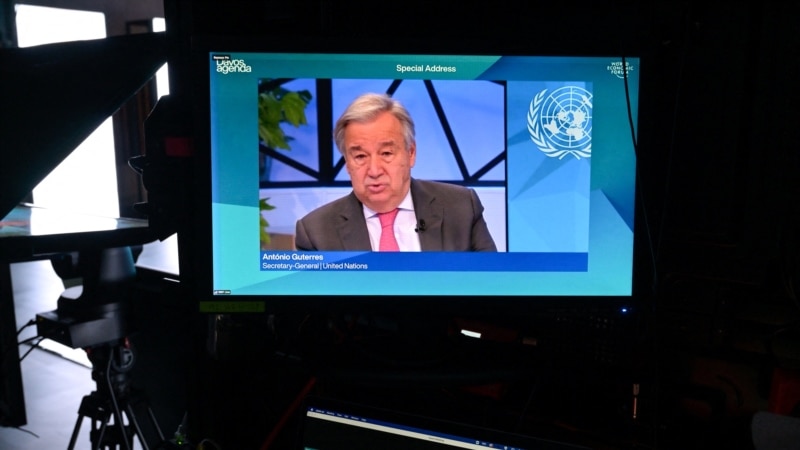
U.N. Secretary-General Antonio Guterres urged international business leaders and economists on Monday to do their part to make post-COVID19 economic recovery equitable across the globe. “At this critical moment, we are setting in stone a lopsided recovery,” he told the World Economic Forum, which normally meets in Davos, Switzerland, but is virtual this year due to the pandemic. “The burdens of record inflation, shrinking fiscal space, high interest rates and soaring energy and food prices are hitting every corner of the world and blocking recovery — especially in low- and middle-income countries,” Guterres said. The U.N. chief said recovery remains “fragile and uneven” as the pandemic lingers, and poorer countries are seeing their slowest growth in a generation and need debt relief and financing. He urged reforms to the global financial system so it works for all countries. “The last two years have demonstrated a simple but brutal truth — if we leave anyone behind, in the end we leave everyone behind,” he said of the lifespan of the pandemic so far. The World Health Organization said on Thursday that 90% of countries have not met the goal of vaccinating 40% of their population by the end of 2021. In Africa alone, about one billion people have not received a single vaccine dose. “If we fail to vaccinate every person, we give rise to new variants that spread across borders and bring daily life and economies to a grinding halt,” Guterres warned. He said more must also be done to support developing countries to fight climate change. “To chart a new course, we need all hands on deck — especially all of you in the global business community,” he said, urging a 45% reduction in global greenhouse gas emissions by 2030. To accomplish that, he reiterated his call to phase out coal and cease building new coal plants. “We see a clear role for businesses and investors in supporting our net-zero goal,” he added, referring to the global target of reaching net-zero emissions by 2050. Guterres told the forum that in economic recovery and climate action, the world cannot afford to repeat the inequalities that continue to condemn millions to poverty and poor health.
Most Read